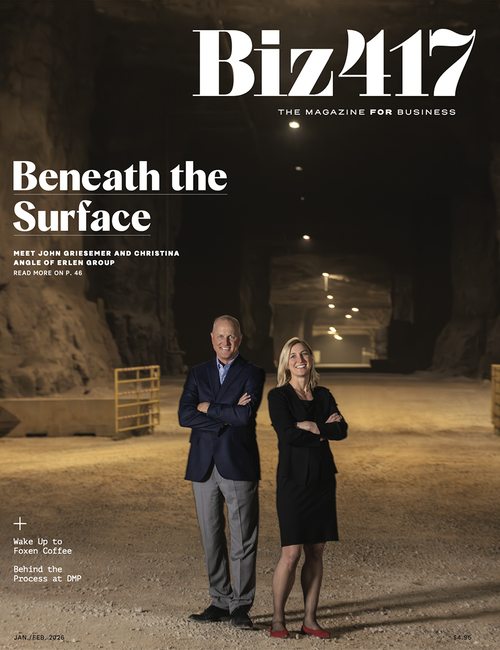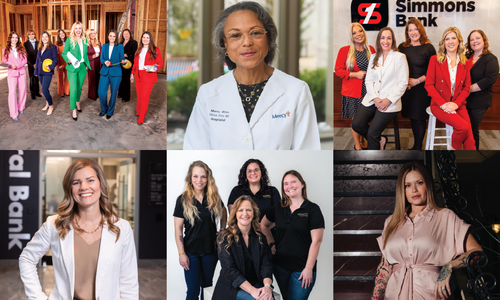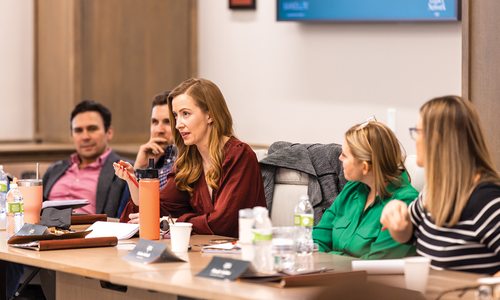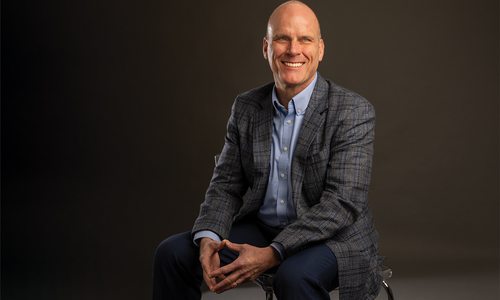
Leadership
Talking Mentoring with Morey Mechlin
Morey Mechlin has recently retired from the position of Executive Director of Care to Learn, and these days she is dedicating her time to volunteer efforts. We sat down over whiskey and coffee at MudLounge to discuss what it takes to be a good mentor.
By Vivian Wheeler | Illustration By Brenna Thummler
May 2016

“You’re one person. You bring on a mentor, and you’re two people. Your mentor has connections and friends. That geometric explosion of opportunities, I don’t know where else you can get that.”
“You’re going to do more listening than talking. I’m a very opinionated person, but I’ve learned that is not the way to mentor somebody. My opinion is frivolous in that setting. They’re wanting to explore options, to talk about ideas. If you’re going to be a mentor, you need to dedicate time to that. It can’t be a once a year thing. There needs to be structure. I’d say listening is important and being willing to give the time it takes.”
“It’s always appropriate [to ask someone to be your mentor] if you’re really interested. It’s not to be used just for a connection. It’s more than that. So anytime you are willing to improve yourself, or you’re looking for ways to expand your horizons, it’s an appropriate time to ask for a mentor. The way I’d go about it is to look for someone you admire, someone you’ve seen qualities in that you respect. Someone that has a different viewpoint from you. Be willing to ask them, ‘Could you commit an hour to me once a month? I’d really like to learn from you.’ I don’t think you’re ever going to get a no from that.”
“It’s like anything else. You get more out of it than you give. You volunteer on a committee, and you think it’s going to take all of this time, but you always learn more. It’s a win-win situation. It’s a win for the mentor, it’s a win for the mentee.”
“Have an endpoint in sight, at least initially. Say, ‘Could we meet for an hour, once a month for six months?’ And then evaluate it. ‘Are you enjoying this? Am I enjoying this?’ Just like anything else, this is an assignment. Make it clear, and I think both parties will be extremely happy.”
“In Springfield, Missouri, I can’t even imagine someone saying no to [an opportunity to mentor]. We are such a wonderful community. People are so willing to give of their time. They give of their money. They are so generous. To think that they could help somebody, you’re not going to get a no.”
“You’re looking to improve, so if you sit down with someone who is just like you, what are you going to learn? I hope you would look for somebody with different qualities and experiences that can bring more to the table. Otherwise you’re just sitting around talking to yourself. What the mentor says is not marching orders, certainly. It’s just opening ideas that you may or may not latch on to. It’s just about expanding horizons.”












